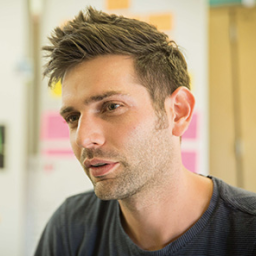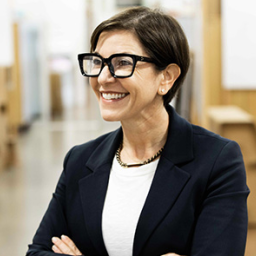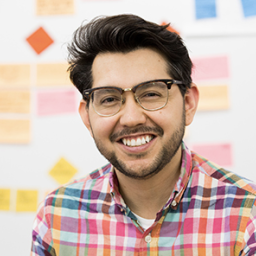We shape the future and the future shapes us.
Educators shape the mindsets, behaviors, and skills their students will carry with them into the future. And while this has always been true, the global pandemic, nationwide attention to injustice, and profound impact of technology on our daily life have heightened our collective sense of urgency to design more abundant futures with—and for—our students.
This moment has made us realize that we cannot just prepare students for the future, we must help them develop the imagination, agency, and will to shape the future. As educators, we spend an inordinate amount of time preparing students for the future as if we know how the future will unfold for them. But in an ever accelerating moment of uncertainty and ambiguity, merely being “prepared” feels insufficient. In a world filled with more unknowns than knowns, how do we help our students not just be “prepared” but capable of envisioning and building the futures they want to bring to life?
Our blueprint is to empower educators and schools with the very strategies and mindsets used by futurists. In K-12 schools we are comfortable teaching the past, but not the future. As Jewish educators, we are uniquely tethered to our history, drawing us towards lessons in morality, dignity and responsibility. And in our institutional infrastructure there are plentiful lesson plans, teacher training, multiple-choice options, and even essay prompts on how to examine what already exists in the world. But there is scant professional learning that prepares us to teach about how to shape the futures we want to bring to life. By crafting and sharing five approaches to empower futures thinking, we believe educators will feel emboldened to see, shape and share the purpose for their school’s institutional journey. Consider using these questions as starting points:
How might we build empathy for those who come after us?
Cultivating Empathy for the Futures invites us to imagine and explore the moral, ethical, social, and equitable human implications of different futures at the individual and communal levels. It asks that we explore the implications and potential experiences of real people living in those futures to help us more deeply understand a much fuller range of emotional and social needs of the humans living and learning in those futures.
How might we start to trace change over time to understand how the world will change?
The future is dynamic, complex, and full of surprise. Change often comes in disruptive ways, seemingly unpredictable and unprecedented. By Tracing Change Across Time, we grow more attuned to toggling between short term possibilities and long term promises, and learn to grapple with – and possibly avert unintended consequences of aspirational ideas in an ever shifting context.
How might we craft visions of coexistence where everyone in your community is heard, seen and valued?
We need to learn to dream, imagine, and build together, side-by-side, with those who bring the wisdom and lived experience far apart from our own. Invite participation, honor individual and collective power, and make positive choices in ways that lift, fortify, extend, and embrace community.
How might we see multiple pathways toward the future, honoring the plurality and ambiguity of creating something new?
We develop our capacity to see across possibility and resist the urge of a singular pathway. In so doing we value different types of knowledge, disciplines, lived experiences, and ideas. We cultivate intellectual and cognitive flexibility, resisting the urge to see things in just “one right way.”
How might we engage in world building to explore what our future communities might look like?
Worldbuilding fluidly integrates arts, humanities, science, philosophy, religion, governance and the human experience in novel and complex ways, making us able to suspend our present to immerse ourselves into the future.
We are being shaped by this moment, and outcomes of the choices we make will shape us for years to come. Educators and students are the futurists we need today.





